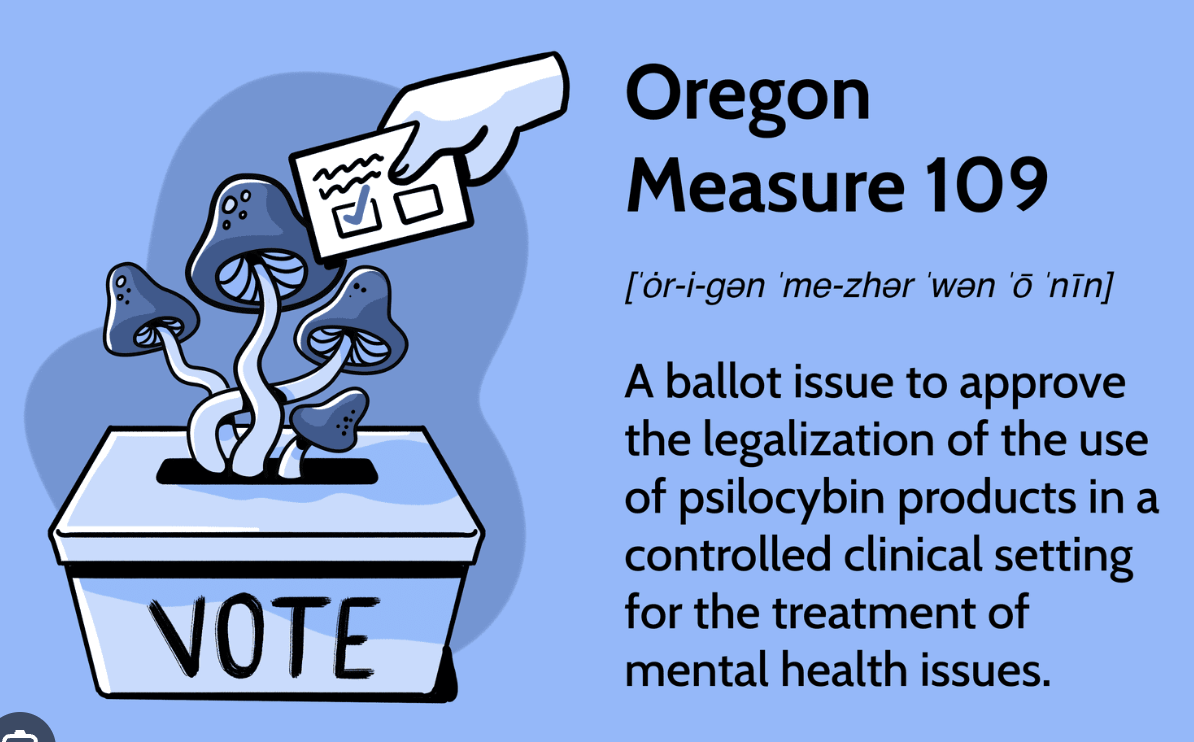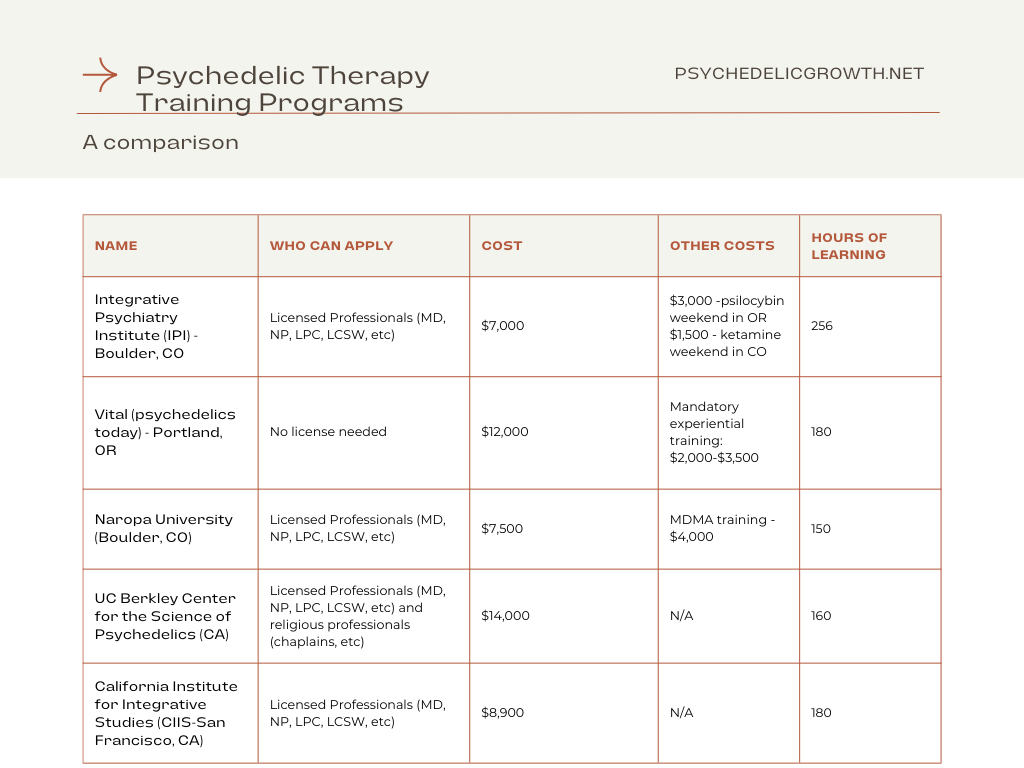How to Become a Psychedelic Therapist in 2024
Navigating the Path to Becoming a Psychedelic Therapist in 2024
Introduction
In recent years, the field of mental health has undergone a transformative shift with the re-emergence of psychedelic therapy as a viable and effective treatment option. As societal attitudes towards psychedelics evolve, so does the demand for trained professionals in the realm of psychedelic therapy. This comprehensive guide will explore the journey of becoming a psychedelic therapist in 2024, covering essential aspects such as understanding the role of a psychedelic therapist, the current legal landscape, available training programs, harm reduction services, and the associated costs.
What is a Psychedelic Therapist?
Before delving into the specifics of becoming a psychedelic therapist, it's crucial to understand the role and responsibilities associated with this profession. A psychedelic therapist is a trained mental health professional who guides individuals through therapeutic experiences involving the controlled use of psychedelic substances. Unlike traditional therapy, psychedelic therapy often involves the use of substances such as psilocybin, MDMA, or LSD to facilitate deep introspection and emotional healing.
Psychedelic therapists play a pivotal role in creating a safe and supportive environment for clients to explore their subconscious, confront unresolved issues, and work towards personal growth. The therapist is responsible for guiding the individual through the entire psychedelic experience, offering emotional support, and facilitating integration sessions afterward to help the client make sense of and apply insights gained during the journey.
The Legal Landscape of Psychedelic Therapy in 2024
As societal perceptions of psychedelics continue to shift, so too does the legal landscape surrounding their therapeutic use. In 2024, several jurisdictions have recognized the potential therapeutic benefits of psychedelics and have taken steps to decriminalize or regulate their use in therapeutic settings.
It's important for aspiring psychedelic therapists to stay informed about the legal status of psychedelic therapy in their region. While some places may have decriminalized certain substances, others may have established specific regulations for their therapeutic use. As of now, the legality of psychedelic therapy remains a patchwork, with some regions embracing it wholeheartedly and others maintaining strict prohibitions.
Overview of Legal Psychedelic Therapy Programs in Oregon and Colorado
Two states in the U.S. at the forefront of legalizing and regulating psychedelic therapy are Oregon and Colorado. These states have implemented programs that allow for the legal use of psychedelics in therapeutic settings, providing a framework for professionals to engage in this transformative work.
Oregon
Oregon, known for its progressive approach to drug policy, has established a regulated system for the therapeutic use of psilocybin, the psychoactive compound found in magic mushrooms. The Oregon Health Authority oversees the program, ensuring that trained professionals adhere to strict guidelines for the administration of psilocybin in therapeutic contexts.
Prospective psychedelic therapists in Oregon can enroll in state-approved training programs that cover the science, ethics, and practical aspects of psychedelic therapy. Graduates of these programs are eligible to become certified psychedelic therapists and contribute to the burgeoning field within the state.
Colorado
Colorado, another trailblazer in the psychedelic therapy landscape, has also implemented a regulatory framework for the use of psychedelics in therapeutic settings. While specific substances and regulations may vary, the Colorado Department of Public Health and Environment oversees the certification and training of psychedelic therapists.
Training programs in Colorado cover a range of topics, including the physiological effects of psychedelics, therapeutic techniques, and ethical considerations. Certification obtained through these programs allows therapists to legally facilitate psychedelic sessions in compliance with state regulations.
Providing Psychedelic Harm Reduction Services
Harm reduction is a fundamental aspect of psychedelic therapy, and therapists must be well-versed in mitigating potential risks associated with psychedelic experiences. Harm reduction services involve educating individuals about the potential risks and benefits of psychedelics, guiding them towards informed choices, and providing support to minimize adverse outcomes.
Aspiring psychedelic therapists can engage in specialized training programs that focus on harm reduction strategies. These programs often cover topics such as screening potential clients for contraindications, managing challenging experiences during sessions, and ensuring a safe and supportive environment for psychedelic journeys.
In addition to formal training, therapists may collaborate with harm reduction organizations to gain practical experience in real-world settings. This could involve participating in community outreach, offering educational workshops, and providing support at events where psychedelics may be present.
Providing Psychedelic Preparation and Integration Services
Preparation and integration are integral components of psychedelic therapy. Preparation involves guiding clients in the period leading up to a psychedelic session, helping them set intentions, addressing concerns, and creating a supportive mindset. Integration, on the other hand, focuses on helping clients make sense of their psychedelic experiences and apply the insights gained to their daily lives.
Psychedelic therapists often undergo specialized training to develop expertise in both preparation and integration. These programs cover therapeutic techniques, effective communication, and the integration of psychedelic experiences into clients' broader life narratives.
In practice, therapists may conduct pre-session meetings to discuss clients' intentions and concerns, provide educational resources, and establish a rapport. Post-session, therapists facilitate integration sessions to help clients process and understand their experiences, supporting them in translating insights into positive behavioral changes.
Cost of Training for Psychedelic Therapy
While the demand for psychedelic therapy training is increasing, it's essential to consider the associated costs. Training programs vary widely in terms of duration, curriculum, and fees. Prospective psychedelic therapists should carefully research and select programs that align with their goals, values, and financial resources.
The cost of training for psychedelic therapy typically includes tuition, materials, and sometimes accommodation for in-person components. Additionally, travel expenses may be incurred for programs that require attendance at specific locations. Scholarships and financial aid may be available for some programs, easing the financial burden for aspiring therapists.
It's crucial to approach the cost of training as an investment in one's professional development. As the field of psychedelic therapy continues to gain acceptance, trained and certified therapists are likely to be in high demand, potentially providing a rewarding return on investment in the long run.
Overview of prominent psychedelic therapy training programs in 2024
Conclusion
Becoming a psychedelic therapist in 2024 is an exciting and evolving journey. As societal attitudes towards psychedelics shift, opportunities for trained professionals in this field continue to expand. Understanding the role of a psychedelic therapist, navigating the legal landscape, and obtaining specialized training in harm reduction, preparation, and integration are key steps on this transformative path.
The emerging legal frameworks in states like Oregon and Colorado provide a template for the integration of psychedelic therapy into mainstream mental health practices. Aspiring therapists should stay informed about regional developments and be prepared to adapt to evolving regulations.
While the cost of training may seem daunting, it's essential to view it as an investment in personal and professional growth. As the field matures and gains wider acceptance, the demand for qualified psychedelic therapists is likely to increase, making the journey a rewarding and fulfilling pursuit for those passionate about facilitating healing and transformation.



